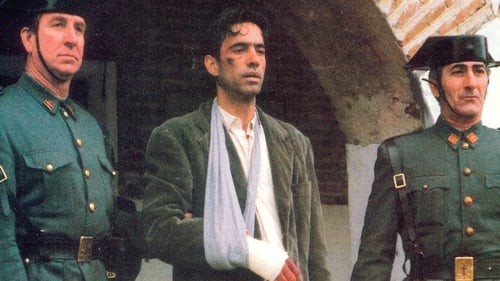
Juez
In Spain of the 1960s, a poor family of quinquis - a nomadic ethnic group with a tradition as old as that of the gypsises of Spain but with even more obscure origins - have a nomadic life marked by poverty. The son, Eleuterio Sánchez Rodriguez, nicknamed "El Lute", steals some chickens and is condemned to six months in jail. El Lute moves to the slum outskirts of Madrid with his common law wife, Chelo, starting an itinerant life as a peddler of pots and pans and living in a quinqui shantytown. He gradually embarks upon as life of petty criminality, eventually participating in the theft of a jewelry store during which a bystander is killed.

This literary film is imbued with the disenchantment of Spanish exiles who left their homes to protest Franco's fascist regime and then returned after its demise to find that democracy had not instilled either ethics or deep motivation in government leaders. Director Basilio Martin Patino presents his story, and a large part of the film is based on his own life, through the experiences of an exiled heroine played by Charo Lopez. She has returned to Spain to look for meaning in her life, something that she never found living in Germany, not even after having a child. She is also in the process of translating the German lyric poet Friederich Holderlin (see the 1985 Halfte Des Lebens) into Spanish, focusing on his epic Hyperion. Excerpts from the translation are voiced over throughout the film. As she looks up old friends from many, many years ago, even those who have achieved worldly success are suffering from the same ennui that propelled her back home.

Criado

José María García

Editor

Editor
A documentary about how Republican forces lost to Franco in the Spanish Civil War.

